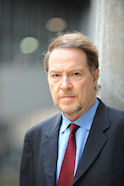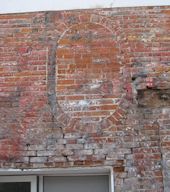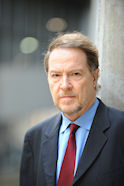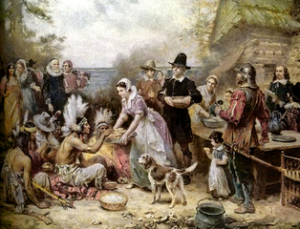By John W. Whitehead
“We need to put pressure on Congress to get things done. We will do this with First Amendment activity. If Congress is unresponsive, we’ll have to escalate in order to keep the issue alive and before it. This action may take on disruptive dimensions, but not violent in the sense of destroying life or property: it will be militant nonviolence. We plan to build a shantytown in Washington, patterned after the bonus marches of the thirties, to dramatize how many people have to live in slums in our nation. But essentially, this will be just like our other nonviolent demonstrations. We are not going to tolerate violence.”—Martin Luther King, Jr. (April 1968)
 The ongoing recession, continuously high unemployment, home foreclosures, congressional intransigence, and the circus of electoral politics are symptoms of a disease so widespread as to have rendered the government altogether incapable of carrying out its mandate, which is to protect the rights of its citizens, individually and collectively. This disease, brought about by the government’s abject collusion with corporate America, has so corrupted the system, which has grown bloated, lumbering and inefficient with time, that there can be little hope of a full recovery. John Winthrop’s bright vision of America as a shining city on a hill is no more.
The ongoing recession, continuously high unemployment, home foreclosures, congressional intransigence, and the circus of electoral politics are symptoms of a disease so widespread as to have rendered the government altogether incapable of carrying out its mandate, which is to protect the rights of its citizens, individually and collectively. This disease, brought about by the government’s abject collusion with corporate America, has so corrupted the system, which has grown bloated, lumbering and inefficient with time, that there can be little hope of a full recovery. John Winthrop’s bright vision of America as a shining city on a hill is no more.
That said, however, while we may not be able to return to a time of smaller, limited government, free from the cloying influence of corporations, there may still be hope of restoring some semblance of that social contract which once reigned supreme and which held that political authority must be derived from the consent of the governed.
Initially, it was hoped that the Tea Party would serve as a bulwark against tyranny, but their lofty ideals quickly became subsumed by a political agenda that did little to distinguish them from their Republican counterparts. Now we have the fledgling Occupy Movement, such that it is. Whether the Occupy Movement proves to be anything more than a footnote in America’s unrelenting march toward complete control by the corporate-state will largely depend on its followers’ willingness to resist the siren song of politics and be apolitical and nonpartisan, confrontational yet nonviolent, inclusive rather than exclusive, and strategic yet visionary.
It has been done before. It can be done again. And the place to start is by studying the tactics of past protest movements such as the Bonus Army, the Civil Rights Movement, and the 1960s anti-war movement, all of which involved occupying public spaces, participating in civil disobedience, and speaking truth to power. Indeed, Occupy Wall Street and its sister protests are merely the latest in a long and historic line of populist protests to use sleep-ins, sit-ins and marches to oppose government policies, counter injustice and bring about change outside the confines of the ballot box.
For example, in May of 1932, more than 43,000 people, dubbed the Bonus Army—World War I veterans and their families—marched on Washington. Out of work, destitute and with families to feed, more than 10,000 veterans set up tent cities in the nation’s capital and refused to leave until the government agreed to pay the bonuses they had been promised as a reward for their services. The Senate voted against paying them immediately, but the protesters didn’t budge. Congress adjourned for the summer, and still the protesters remained encamped. Finally, on July 28, under orders from President Herbert Hoover, the military descended with tanks and cavalry and drove the protesters out, setting their makeshift camps on fire. Still, the protesters returned the following year, and eventually their efforts not only succeeded in securing payment of the bonuses but contributed to the passage of the G.I. Bill of Rights.
Similarly, the Civil Rights Movement mobilized hundreds of thousands of people to strike at the core of an unjust and discriminatory society. Likewise, while the 1960s anti-war movement began with a few thousand perceived radicals, it ended with hundreds of thousands of protesters, spanning all walks of life, demanding the end of American military aggression abroad.
What these movements had, which the present Occupy movements lack, is a coherent message, the mass mobilization of a large cross section of American society, what Martin Luther King Jr. called a philosophy of “militant nonviolent resistance” and an eventual convergence on the nation’s seat of power—Washington, DC—the staging ground for the corporate coup which has driven America to the brink of collapse. This is where the shady deals are cut, where lobbyists and politicians meet, where regulators are captured, and where corporate interests are considered above all else.
Wall Street may embody corrupt business practices, but Washington, DC, is where the collusion between government and business occurs, and that is ultimately what the Occupiers should be targeting. The government leaders and agencies responsible for this collusion are easily identifiable—they are entrenched in the White House, Congress and the courts—with Barack Obama at the front of the pack, having raised more money from Wall Street than all of the current Republican candidates combined.
The balance of power that was once a hallmark of our republic no longer exists. James Madison’s warning that “the accumulation of all powers, legislative, executive, and judiciary, in the same hands, whether of one, a few, or many, and whether hereditary, self-appointed, or elected, may justly be pronounced the very definition of tyranny” has, regrettably come to pass. A silent coup has taken place, transforming our once-representative government into a corporate police state. The system cannot be fixed from within.
The only hope now rests with the determination of “we the people” to wrest back control of our government. A broad-based coalition is slowly forming, but time alone will tell if the Occupiers can maintain their resolve, develop a cohesive agenda, effectively communicate their message, and remain apolitical and nonviolent.
No matter what your political persuasion might be, this is no time to stand silently on the sidelines. It’s a time for anger and reform. Most importantly, it’s a time for making ourselves heard. And there is no better time to act than the present. As Robert F. Kennedy reminded his listeners in a speech delivered at the University of Cape Town in 1966, “Hand in hand with freedom of speech goes the power to be heard, to share in the decisions of government which shape men’s lives. Everything that makes man’s life worthwhile—family, work, education, a place to rear one’s children and a place to rest one’s head—all this depends on decisions of government; all can be swept away by a government which does not heed the demands of its people.”
What can ordinary citizens do? Instead of sitting around and waiting for someone else to change things, take charge. Never discount the part that everyday citizens play in our nation’s future. You can change things, but there can be no action without education. Get educated about your rights and exercise them. Start by reading the Bill of Rights. You can do so online at www.rutherford.org. Or, if you want a copy to keep with you, email me at johnw@rutherford.org and I’ll send you a free one.
 Most important of all, just get out there and do your part to make sure that your government officials hear you. The best way to ensure that happens is by never giving up, never backing down, and never remaining silent. To quote Dr. King, “If you can’t fly, run; if you can’t run, walk; if you can’t walk, crawl, but by all means keep moving.”
Most important of all, just get out there and do your part to make sure that your government officials hear you. The best way to ensure that happens is by never giving up, never backing down, and never remaining silent. To quote Dr. King, “If you can’t fly, run; if you can’t run, walk; if you can’t walk, crawl, but by all means keep moving.”
It doesn’t matter whether you’re protesting the economy, the war, the environment or something else altogether. What matters is that you do your part. As that great revolutionary firebrand Samuel Adams pointed out, “It does not require a majority to prevail, but rather an irate, tireless minority keen to set brushfires in people’s minds.”
Take some time right now and start your own brushfire for freedom.
Constitutional attorney and author John W. Whitehead is founder and president of The Rutherford Institute. He can be contacted at johnw@rutherford.org. Information about the Institute is available at www.rutherford.org

 Hidden Treasure has been uncovered on the east wall of the Toward Independence, Inc. building at 87 E. Main Street in downtown Xenia, according to Toward Independence, Inc. (TII) Board Chairperson, David Springsteen. “We were excited to hear that our contractor uncovered two inlaid brick “O”s on the east side of the building where we are removing deteriorating stucco. We think the “O’s were created a century ago for Xenia’s Orpheum Theater. Preserving these ornately bricked “O”s and sharing them with the public is a great way for TII to pay homage to Xenia’s past.”
Hidden Treasure has been uncovered on the east wall of the Toward Independence, Inc. building at 87 E. Main Street in downtown Xenia, according to Toward Independence, Inc. (TII) Board Chairperson, David Springsteen. “We were excited to hear that our contractor uncovered two inlaid brick “O”s on the east side of the building where we are removing deteriorating stucco. We think the “O’s were created a century ago for Xenia’s Orpheum Theater. Preserving these ornately bricked “O”s and sharing them with the public is a great way for TII to pay homage to Xenia’s past.” We elevate the events of the American Revolution to near-mythical status all too often and forget that the real revolutionaries were people just like you and me. Caught up in the drama of Red Coats marching, muskets exploding and flags waving in the night, we lose sight of the enduring significance of the Revolution and what makes it relevant to our world today. Those revolutionaries, by and large, were neither agitators nor hotheads. They were not looking for trouble or trying to start a fight. Like many today, they were simply trying to make it from one day to another, a task that was increasingly difficult as Britain’s rule became more and more oppressive.
We elevate the events of the American Revolution to near-mythical status all too often and forget that the real revolutionaries were people just like you and me. Caught up in the drama of Red Coats marching, muskets exploding and flags waving in the night, we lose sight of the enduring significance of the Revolution and what makes it relevant to our world today. Those revolutionaries, by and large, were neither agitators nor hotheads. They were not looking for trouble or trying to start a fight. Like many today, they were simply trying to make it from one day to another, a task that was increasingly difficult as Britain’s rule became more and more oppressive. The American Thanksgiving tradition is a religious tradition. It rooted the survival stories of our Puritan ancestors. The journals of both William Bradford and Edward Winslow are important sources of that narrative. It is in those two literary sources that the Thanksgiving tradition is discovered.
The American Thanksgiving tradition is a religious tradition. It rooted the survival stories of our Puritan ancestors. The journals of both William Bradford and Edward Winslow are important sources of that narrative. It is in those two literary sources that the Thanksgiving tradition is discovered. The ongoing recession, continuously high unemployment, home foreclosures, congressional intransigence, and the circus of electoral politics are symptoms of a disease so widespread as to have rendered the government altogether incapable of carrying out its mandate, which is to protect the rights of its citizens, individually and collectively. This disease, brought about by the government’s abject collusion with corporate America, has so corrupted the system, which has grown bloated, lumbering and inefficient with time, that there can be little hope of a full recovery. John Winthrop’s bright vision of America as a shining city on a hill is no more.
The ongoing recession, continuously high unemployment, home foreclosures, congressional intransigence, and the circus of electoral politics are symptoms of a disease so widespread as to have rendered the government altogether incapable of carrying out its mandate, which is to protect the rights of its citizens, individually and collectively. This disease, brought about by the government’s abject collusion with corporate America, has so corrupted the system, which has grown bloated, lumbering and inefficient with time, that there can be little hope of a full recovery. John Winthrop’s bright vision of America as a shining city on a hill is no more.